Posted on 12/19/2025
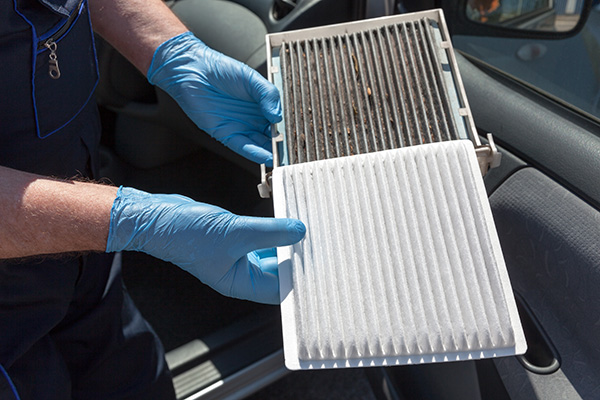
You flip on the A/C expecting clean, cool air, but instead you get a weak breeze or a faint dusty smell. Many drivers blame the A/C system itself, yet one small part often sits at the center of the problem: the cabin air filter. It works quietly behind the scenes, and once it gets clogged, comfort and air quality can drop fast. What the Cabin Air Filter Does The cabin air filter sits in the path of the air that comes into your vehicle’s interior. It screens out dust, pollen, leaves, and other debris before that air reaches the ducts, the evaporator, and your vents. On many vehicles, it is tucked behind the glove box or under the cowl, where you never see it during normal use. When the filter is clean, air flows smoothly across the A/C evaporator, and the fan does not have to work very hard to move that air. You get stronger airflow, the system cools more efficiently, and the air you breathe is noticeably fresher. Once the filter fills up with dirt, every part ... read more
Posted on 11/28/2025

Mountain driving in winter is a different game. Grades are steeper, weather changes faster, and traction can shift from dry to polished ice in a single mile. The risks add up quickly if brakes are tired, tires are mismatched, or visibility drops. Use this guide to understand the hazards that catch drivers off guard and how to prepare your vehicle so those miles feel calm instead of tense. Why Mountain Winter Driving Is Different Elevation squeezes power from engines and reduces grip. Cold, dense air can hide patches of black ice, while shaded corners stay frozen long after sunny stretches have thawed. Wind funnels through canyons, pushing high-profile vehicles sideways. We often see issues start as something small, like a soft brake pedal or borderline tread depth, then snow and altitude magnify the problem. Rapid Temperature Swings Create Invisible Ice ... read more
Posted on 10/31/2025
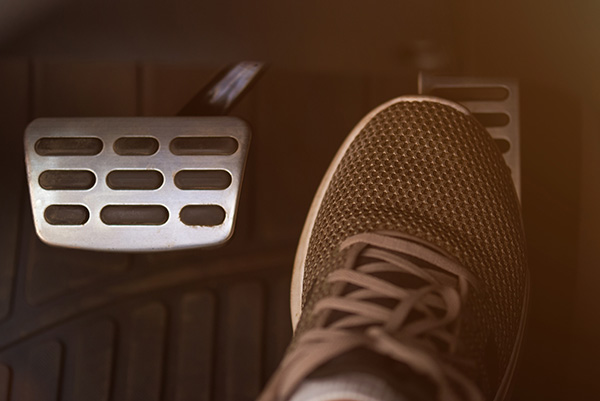
A smooth pull onto the highway should feel steady and controlled. If the steering wheel buzzes, the seats vibrate, or the whole car shakes as you add throttle, something is not right. Acceleration loads every part of the drivetrain at once, so small issues show up quickly. Catching the cause early keeps the problem from taking out tires, mounts, or transmission parts. How Tire and Wheel Problems Show Up Under Throttle Tires and wheels are the first place to look. A separated tire belt can feel fine at low speed, then thump and shake as you accelerate. A wheel that is slightly bent may not show during gentle cruising, yet it will vibrate when speed builds. Missing wheel weights or mud packed inside the rim can throw the balance off. If the shake changes with road speed and not engine speed, think tire or wheel. Inspect the tread for high spots, bulges, or cuts. Check that all wheel weights are present ... read more
Posted on 9/26/2025
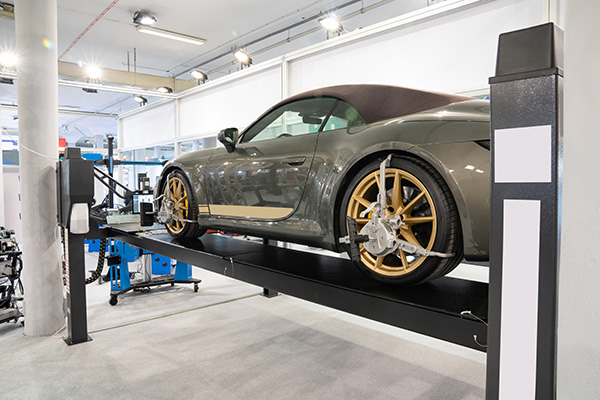
If you’ve ever had to fight with your steering wheel just to stay in your lane, you know how frustrating it can be when your car pulls to one side. That slight tug may not seem like a big deal at first, but it’s often a sign that something in your vehicle isn’t working as it should. Whether it happens only under braking, after hitting a bump, or all the time, consistent pulling usually means one or more systems are out of balance. Ignoring this symptom could lead to tire damage, poor fuel economy, or even unsafe handling. Uneven Tire Pressure Can Throw Off Steering One of the most common and easily overlooked causes of a pulling sensation is tire pressure. If one front tire has significantly lower pressure than the other, it can cause the vehicle to lean or steer slightly in that direction. Even a few PSI differences between tires can create an imbalance that becomes noticeable when driving straight. Check your tire pressure with a reliable gauge ... read more
Posted on 7/29/2025
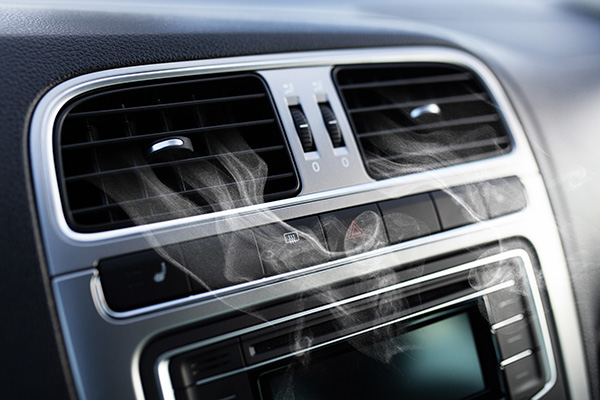
Unusual smells inside or around your car are often the first signs that something isn’t working the way it should. While it’s easy to ignore a faint odor, some smells can indicate leaks, overheating components, or other hidden issues that may require serious repairs if left untreated. Being aware of the different car smells that might indicate issues can help you address them early and avoid costly breakdowns. Sweet Smell Like Syrup: Possible Coolant Leak If you detect a sweet, syrupy smell near the front of your vehicle, it’s likely that coolant is leaking from the engine. Coolant contains ethylene glycol, which has a sugary odor that becomes more noticeable when it’s heated. Leaks might come from a cracked hose, a worn radiator, or even the water pump. Even a small coolant leak can result in your engine overheating, which may lead to severe engine damage if left unaddressed. If you notice this smell and see puddles under your car ... read more
Posted on 6/27/2025

When you're heading off the pavement and into the dirt, rocks, or sand, one of the most important adjustments you can make to your vehicle is tire pressure. While highway tire pressure is optimized for fuel economy and tread life, off-road tire pressure serves a very different purpose. Knowing how and when to adjust it can improve traction, ride comfort, and overall control of your vehicle on rugged terrain. Why Tire Pressure Matters Off-Road The surface you drive on affects how your tires interact with the ground. On pavement, firm tire pressure enhances efficiency and improves steering response. But when the surface becomes loose, soft, or uneven, firm tires can actually hurt your vehicle's ability to grip. Lowering tire pressure increases the contact patch—the area of the tire that touches the ground. With more tire surface pressing against the terrain, your vehicle gains more traction. Softer tires can also conform to the terrain, which helps absor ... read more
Posted on 5/30/2025

Long road trips can test even the most patient parents. Kids get restless, hungry, and bored quickly, and when hunger strikes, it often leads to complaints, messes, and unplanned stops. Packing the right snacks can make the difference between a peaceful drive and a chaotic one. To help keep everyone in good spirits, we’ve put together a list of kid-approved snacks that are travel-friendly, low in mess, and satisfying for those long stretches on the road. Whether you’re heading out for a weekend getaway or a cross-country adventure, these snack ideas will help keep your young passengers happy. 1. Cheese Sticks and Cubes Cheese is packed with protein and easy to portion. String cheese or pre-cut cubes hold up well in a cooler and make for a great no-mess snack. Pair them with crackers or pretzels for a more filling option. 2. Fruit That Doesn’t Squish Easily Skip the soft fruits that bruise quickly. Instead, go for apples, grapes ... read more
Posted on 4/28/2025
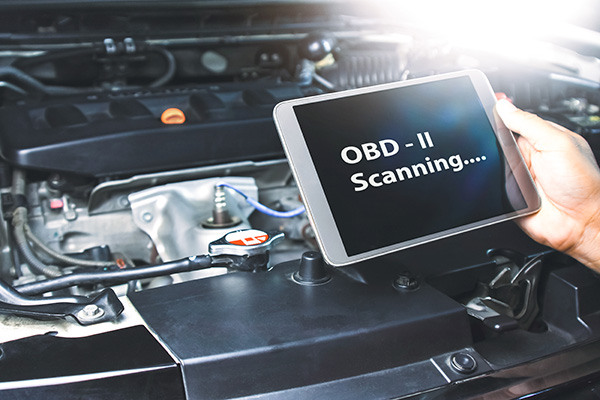
Today’s vehicles rely on advanced computer systems to keep track of everything from performance to safety and emissions. When something isn’t quite right, the system logs diagnostic trouble codes (DTCs) that help point to the issue. But how can you tell when it’s time to hook your car up for a scan? Here are eight signs your vehicle might be trying to tell you it needs some attention—before a small problem turns into a bigger repair bill. 1. The Check Engine Light Is On This is the most obvious—and most misunderstood—sign. Your check engine light can be triggered by a wide range of issues, from a loose gas cap to a serious engine problem. If the light stays on or flashes, it means your vehicle has detected a fault and stored a code. Even if your car seems to be running normally, it’s a good idea to have it scanned. Ignoring the light could lead to reduced fuel efficiency, engine damage, or emissions problems. 2. St ... read more
Posted on 3/28/2025

If you've ever caught a whiff of something burning inside your car or noticed a flicker in the dash lights, it might’ve crossed your mind—can my car actually catch fire from something electrical? The answer is yes, it can. Electrical shorts are one of the leading causes of vehicle fires, especially in older cars or those with wiring damage, DIY modifications, or neglected electrical systems. While not every short circuit will lead to flames, all electrical issues should be taken seriously. A little warning sign can turn into a bigger, more dangerous problem if ignored. What Exactly Is an Electrical Short An electrical short happens when electricity takes an unintended path through the wiring—often due to damaged insulation, corroded wires, or faulty connections. This causes excess current to flow, which creates heat. If that heat builds up near plastic, upholstery, or other flammable materials, you’ve got the perfect recipe for a fire. M ... read more
Posted on 2/28/2025
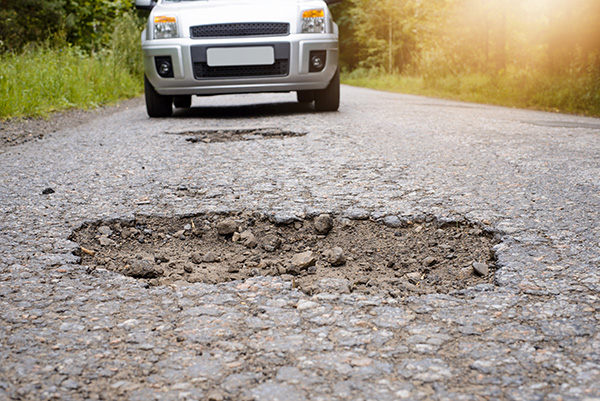
If you've ever noticed that roads seem rougher once winter ends, you’re not imagining things. Potholes become more common and severe after cold weather, making spring a frustrating time for drivers. These road hazards can cause significant damage to your tires, suspension, and alignment, leading to costly repairs. But why do potholes get worse after winter? The answer lies in how temperature fluctuations, moisture, and traffic all interact with the road surface. How Potholes Form Potholes don’t appear overnight. They start as small cracks in the pavement caused by natural wear and tear, heavy traffic, and weather exposure. Once cracks form, water seeps into them, settling beneath the surface of the road. During winter, temperatures often fluctuate between freezing and thawing. When water freezes, it expands, pushing the pavement upward and creating gaps underneath. As temperatures rise, the ice melts, leaving behind empty spaces where the pavement is ... read more